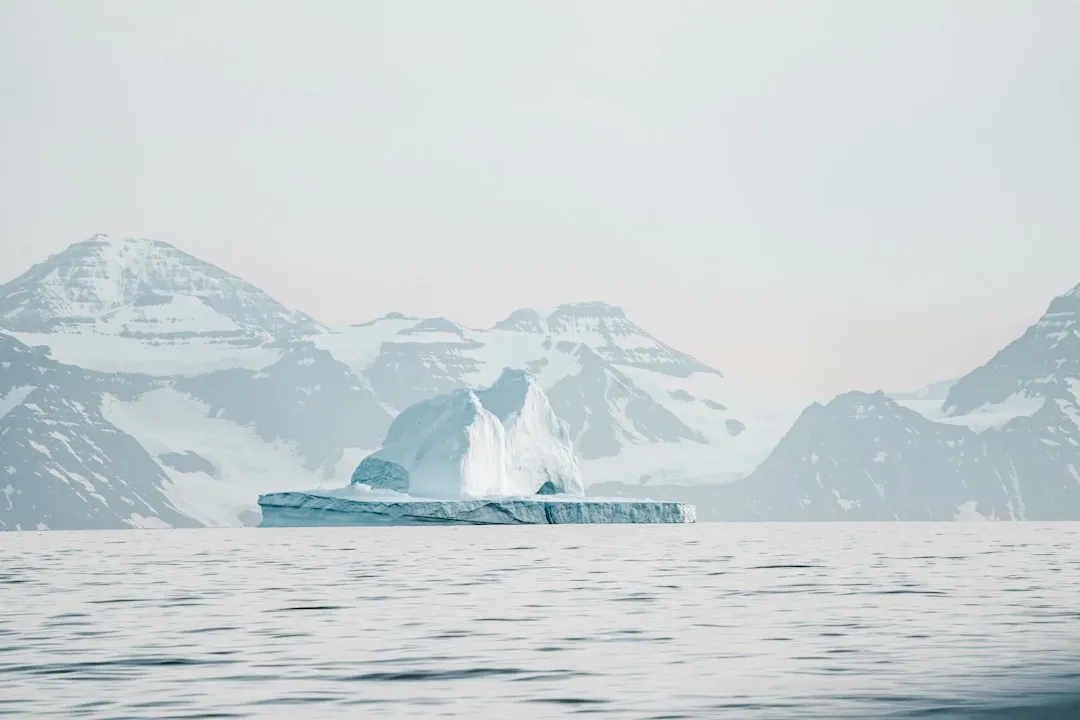The UK is leveraging AI technology to enhance Arctic security against hostile threats from Russia amid rising tensions.
The UK embraces cutting-edge AI solutions to enhance Arctic defense.
Growing Geopolitical Tensions in the Arctic
The Arctic region is witnessing a dramatic shift in its geopolitical landscape, driven by climate change and the ensuing scramble for resources. As temperatures rise, previously inaccessible areas are becoming open for exploration, leading to increased interest from various nations. This has prompted the UK to respond decisively. AI deployment is not just a technological upgrade; it represents a strategic move to safeguard national interests in a rapidly evolving context. In the words of Foreign Secretary David Lammy, the Arctic is becoming an ‘increasingly important frontier for geopolitical competition.’
With nations like Russia enhancing their military presence in the Arctic, the UK recognizes that stability in this region is vital for its own security. The presence of Russia’s Northern Fleet, which poses a persistent threat to vital infrastructure, particularly undersea cables, necessitates a robust response. The UK’s commitment to leveraging technology for security is now manifested in its AI initiatives aimed at monitoring hostile activities in the Arctic.
AI Initiatives and Strategic Partnerships
During his recent visit to the Arctic, Foreign Secretary Lammy announced a groundbreaking UK-Iceland tech partnership focused on Arctic security. This collaboration aims to harness the power of AI technologies to monitor and detect hostile activities across vast and challenging terrains. The initiative is a clear acknowledgment that as the Arctic opens up, so do opportunities for those seeking to exploit its vulnerabilities.
AI’s role in this context cannot be overstated. By employing advanced algorithms and machine learning, the UK aims to enhance its situational awareness in the Arctic, enabling faster and more accurate responses to emerging threats. This tech partnership is a response to the changing dynamics of the region, where traditional security measures alone may fall short.
The Role of Joint Military Operations
Joint military operations have been a cornerstone of the UK’s Arctic strategy. British and Norwegian naval vessels conduct critical patrols designed to detect and deter emerging threats. This military collaboration underscores the importance of collective security in the High North, especially in light of increasing Russian activity. The partnership has evolved over decades, with British troops training in Norway for over fifty years.
These operations are vital not only for immediate security but also for fostering enduring relationships with allies. As Lammy stated, “It’s more important than ever that we work with our allies in the High North… to enhance our ability to patrol and protect these waters.” This collaborative approach is paramount in maintaining a stable security environment in the Arctic.
Environmental and Economic Implications
The melting ice caps are not solely a climate concern; they are reshaping global economic landscapes as well. The Arctic is rich in untapped resources, including gas, oil, and precious minerals, making it a focal point for geopolitical competition. As nations vie for control over these resources, security concerns inevitably escalate. The UK’s AI initiatives also aim to monitor environmental changes and mitigate potential risks associated with resource extraction.
Moreover, the risks posed by Russia’s nuclear-powered icebreakers complicate the situation. These vessels are integral to Russia’s strategy in the High North, often operating in ways that threaten both maritime security and the fragile Arctic ecosystem. The UK’s focus on using AI for monitoring is not just about defense; it also encompasses environmental stewardship, recognizing the interconnectedness of security and climate action.
Future Directions and Defense Spending
The UK’s commitment to enhancing its Arctic security is reflected in recent announcements regarding defense spending. Earlier this year, the Prime Minister revealed plans to increase defense expenditure to 2.5% of GDP by April 2027, with ambitions to reach 3% in the next Parliament. This significant investment underscores the UK’s recognition of the strategic importance of Arctic security as part of its broader defense posture.
In addition to financial investments, the UK is also strengthening its Security and Defence Partnership with the EU, which emphasizes closer collaboration to enhance security in Europe. This partnership is crucial, given the interconnected nature of security interests across the continent, especially in light of the challenges posed by Russia’s military activities.
Conclusion: A New Era of Arctic Security
The UK’s deployment of AI technologies to bolster Arctic security represents a proactive approach to an increasingly complex geopolitical landscape. As the Arctic becomes a battleground for economic interests and national security, the UK is poised to leverage technology in ways that enhance its situational awareness and operational capabilities. This focus on innovation reflects a broader trend where security, climate action, and international collaboration are inextricably linked, illustrating that the future of Arctic security will be shaped by those who can effectively navigate this new reality.
“We cannot bolster the UK’s defence without greater security in the Arctic.” — Foreign Secretary David Lammy

